Para la cultura. This Spanish phrase translates to "for the culture." La cultura shapes our stories and the multifaceted, intersectional layers of Latinidad and our identity, space, and belonging. In honor of Hispanic Heritage Month, September 15 to October 15, we celebrate the histories, cultures, and contributions of Hispanics and Latinos. At Audible, we are dedicated to bringing Hispanic and Latino stories to life—all in the spirit of para la cultura.
Note: Although "Hispanic" and "Latino" are often used interchangeably, they actually are different things. Hispanic refers to people who speak Spanish or are descended from Spanish-speaking populations, while Latino refers to people who are from or descended from people from Latin America.
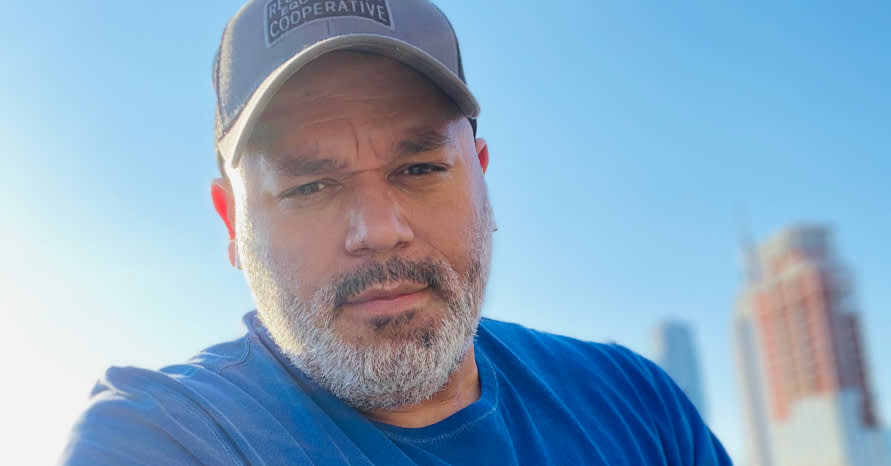
Edwin, Content
How significant is it for you to celebrate this year’s Hispanic Heritage Month? Any plans? If there's one thing that Latin families do, it is that we spend tons of time together. With both my parents gone, my go-to family is my two siblings and their kids. I didn’t see them for about a year, so this Hispanic Heritage Month, I’m going to make sure we get together. COVID taught me not to take family for granted at any time. Seeing so many families tragically lose loved ones taught me to cherish every moment with my own.
Some of the most exciting classic and contemporary creators are Hispanic. Whom do you greatly admire and which listen do you most recommend? My colleagues know this,
but Elizabeth Acevedo’s writings resonate so much within me. It’s like she gets me and I get her. Her writings transcend Latin/Dominican culture while being able to tell an impactful story that we can all relate to. I wholeheartedly recommend Clap When You Land because while it is a story of loss, it is also about forgiveness and resilience. Acevedo’s narration
oscillates like sweet poetry. You won’t be disappointed.
Can you recommend listens that defy or dismantle stereotypes of the Hispanic community? Stereotypes are born out of fear and ignorance. As a child, I watched cartoons with characters like Speedy Gonzales. My family watched telenovelas where brown people were maids or ranch hands, and Caucasians were beautiful and educated. Of course, I thought nothing of it then, but after having listened to titles like Open Veins of Latin America by Eduardo Galeano and Inventing Latinos by Laura Gómez, one can fully start to comprehend that the root causes of these stereotypes grew out of wars and conflicts between nations. Galeano’s book traces the history of how Latin America was literally pillaged by colonizing powers. That in itself made for a fusion between Latin America and North America that won’t go away anytime soon. It is very intimidating for some who are scared of people who don’t look like them and just want to speak one language. While these two listens aren’t specifically about Latino stereotypes, I find them to be powerful narratives that will help understand the root causes of today’s Latino identity.
Complete this sentence: I love my Hispanic heritage because we are a diverse people.
It is a beautiful and complex culture. Understanding the complexities have made me appreciate being Latino and American. I love all our accents in the different parts of the continents. I love the spectrum of colors of our skin. Most importantly, I love my heritage because it represents family, love, and hard work.
What would you like others to understand about Hispanic heritage? I would say that we’re not just about the food and entertainment. Other minority groups struggle with similar stereotypes as well, not just Hispanics. I think one thing I would like others to learn is that Latina women are STRONG. I mean from Selena Gomez and Joan Baez to Supreme Court Justice Sonia Sotomayor and Latinas like Rigoberta Menchú, who fought for Indigenous rights. These Latinas should be commended for their accomplishments. But also let’s bring praise to the everyday proud Latina mom for being the backbone of the family, resilient and strong.
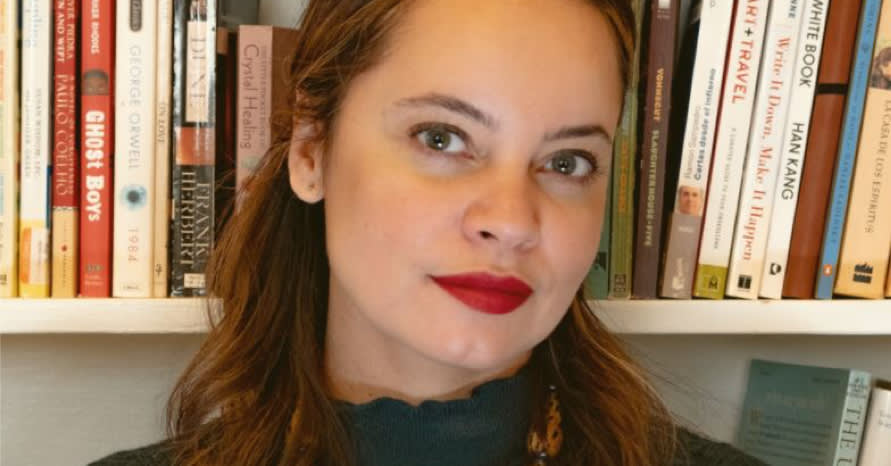
Nicole, Content
Do you have any plans for celebrating Hispanic Heritage Month this year? My plans are to listen to my culture’s music, listen, and read my culture’s books, and eat my culture’s food. I spent 100% of the spring and summer under a kitchen renovation and couldn’t cook. I look forward to going back to that. In addition, one of the Latina icons I follow on Instagram quit her job and launched her business full time. I plan on supporting her and
others in the Latino-owned business space.
Can you share some of your favorite listens from Hispanic creators? Isabel Allende’s La Casa de los Espíritus will forever be a staple for me. I feel so connected to it, especially because it was an intimidating read at the time. I picked it up a few years after living in the US, my language already starting to fade and feeling foreign to me. I am so proud for getting through it and for the privilege of hearing and understanding the story in its native language. More recently, I find stories by Elizabeth Acevedo (Clap When You Land) inspiring, with its mix of English and Spanish, a dialect of sorts which is now the reality of many Spanish speakers living in the US. The same goes for Erika L. Sánchez’s I Am Not Your Perfect Mexican Daughter.
Complete this sentence: I love my Hispanic heritage because I get to consume content (audiobooks, films, music) in the richest language—a translated Pablo Neruda poem just ain’t it!
What would you like others to understand about Hispanic heritage? Two things: 1) It is
massive and it is diverse, and 2) It is not a trend. Just because I don’t look Hispanic or your idea of it, doesn’t mean I’m not. Mixed people are not watered-down versions of their ethnicities. I think in Spanish, I write in Spanish, I dream in Spanish. My looks, my last name, or me hiding my accent due to discrimination doesn’t make me a lesser Hispanic.
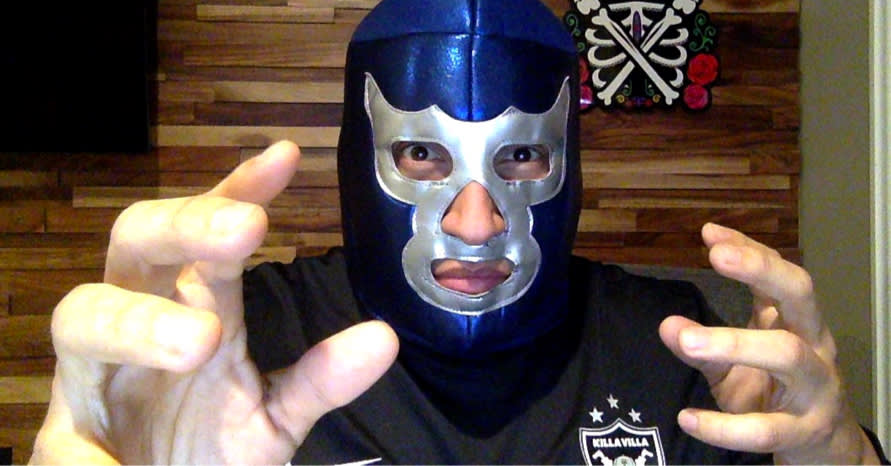
Christian, Marketing
The worldwide Hispanic community was hit hard by the pandemic. While we’re not completely on the other side of it, how significant is it for you to celebrate this year’s Hispanic Heritage Month? The pandemic hit home with the loss of relatives and friends of my family. This year’s Hispanic Heritage Month for me will be one of hope and an urgency to help my community thrive. The plan is to find ways to contribute in meaningful ways big or small.
Which Hispanic creator’s work are you especially loving right now? I personally like to escape with something that keeps me on the edge, and the work of Guillermo del Toro resonates with me. I would suggest The Strain Trilogy.
Can you recommend listens that help defy or dismantle stereotypes of the Hispanic community? Latin History for Morons gives a comedic history that will educate our allies and foes about how diverse we are and what struggles aren’t taught or made aware of to the everyday person.
Complete this sentence: I love my Hispanic heritage because it allows me to enjoy and appreciate the world in colors, words, and sounds that some will never be able to experience.
What would you like others to understand about Hispanic heritage? It is not four weeks of the year to celebrate but rather four weeks to reflect on how much more we have to go. It’s a time to appreciate all the contributions and the struggles of the past and how we must continue to work hard so everyone is aware of this history and build upon for the future.
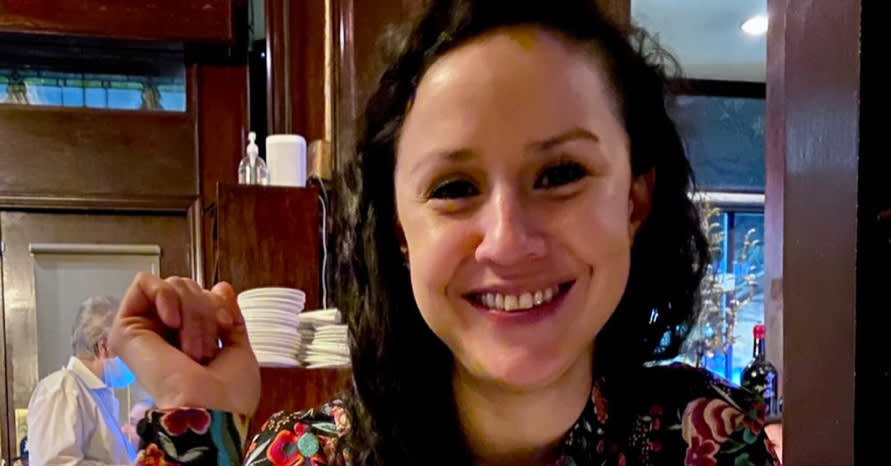
Vivian, Customer Care
Do you have any plans for Hispanic Heritage Month this year? My parents will be in the States for those days and we are going to try to cook some food and share it with friends. Dishes like gallo pinto, olla de carne, etc.
Which Hispanic creator or creators are you excited to share today? Guillermo del Toro Gómez. I most recommend The Shape of Water by del Toro and Daniel Kraus.
Complete this sentence: I love my Hispanic heritage because of the contributions to art, music, and especially food! Hispanics are all about traditions, family, and celebration. Celebrating life is how people in my country say “Hi” or “Thank you”—pura vida! It has been in the Costa Rican vocabulary for more than 50 years, and it means “pure life,” and more than a simple phrase, it is a way of life.

Patty, Customer Care
How significant is it for you to celebrate this year’s Hispanic Heritage Month? Any plans? It is always significant in our household. My boyfriend and I celebrate our two different Hispanic heritages almost daily through the foods we eat. There are days when I’ll emerge out of my office space to find the kitchen filled with the aroma of Salvadorian breakfast cakes (quesadillas), while there are others when I’ll wake up and start peeling plantains for a Dominican tres golpes. During Hispanic Heritage Month, we always make an extra effort to learn new recipes. This year, my family will also attend a few events in the area where we can gather with other Hispanics. The Newark Museum of Art is hosting a Hispanic Heritage Month kickoff event later this month. I’ll also be celebrating by getting involved in our internal Audible celebrations.
Some of the most exciting classic and contemporary creators are Hispanic. Whom do you greatly admire and which listen do you most recommend? I admire many of them.
Currently, I’m on a Julia Alvarez binge. My last listen my mom recommended to me after I asked her how we can better share our heritage with the children in our family. How Tía Lola Came to (Visit) Stay is written from the perspective of an 11-year-old boy (who is about my nephew’s age) getting to know his heritage for the first time. The story starts out with Miguel and his little sister, Juanita, moving to Vermont after their parents separate. Tía Lola comes to help the family, and through her he learns about the foods, traditions, and stories of the Dominican Republic. Miguel also learns the meaning of ñapa (a little bit more). He asks for a ñapa at Christmas, not a gift but for Tía Lola to stay with them in Vermont.
Complete this sentence: I love my Hispanic heritage because we have a way of looking at life as if it’s almost magical. I watch my mother cooking, for example, and I’ll say, “Hey, Mami, why aren’t you measuring anything?” And she’ll reply, “Ah, I just know how much to put. Your abuela taught me this way.” Her meals are always perfect. I love my heritage because we say things like sana sana colita de rana, which literally translates to “healthy healthy frog tail.” It makes no sense, but saying that out loud as we rub or kiss the ache or pain, those words make everything feel better every time.
What is it that you would like others to understand about Hispanic heritage? There are many versions of what Hispanic heritage looks like. They are all so beautiful, and worth
learning about.
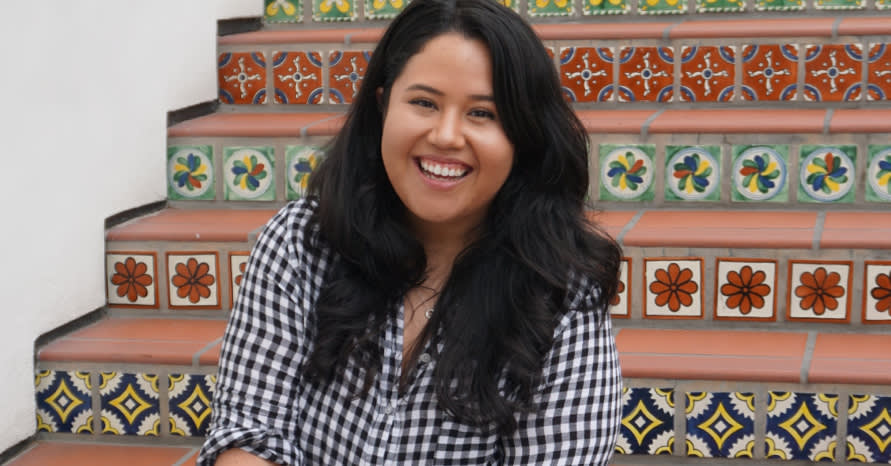
Analee, Community Service Manager
How are you planning to celebrate this year’s Hispanic Heritage month? Due to the pandemic, I wasn’t able to see my family; they live on the other side of the country. It was extremely difficult for me because I usually visit them at least two to three times a year. As a way to feel connected, I video chatted with my mom and had her talk me through making pupusas, a Salvadorian dish. I’m definitely excited to make more during Hispanic Heritage Month and share them with friends.
Some of the most exciting classic and contemporary creators are Hispanic. Whom do you greatly admire and which listen do you most recommend? I, Rigoberta Menchú is a memoir that speaks to the life of Indigenous Guatemalans during the civil war in Guatemala. As someone who is part Guatemalan, hearing Menchú’s account and testimony of her people was extremely moving for me. She is a human rights activist and feminist, and has dedicated her life to the rights of Guatemala’s Indigenous people and promoting Indigenous rights internationally. She is a leader that I can truly see myself in.
Complete this sentence: I love my Hispanic heritage because of my heritage as a mixed Latina Hispanic (Guatemalan, Salvadorian, and Spanish). I feel so grounded in the cultures of my people and enjoy being able to share that with others. There’s also something beautiful about being anywhere in the world and being able to meet other Latinos and Hispanics and connecting through our language and/or cultures.
What would you like others to understand about Hispanic heritage? Hispanic heritage and Hispanic Heritage Month are complicated. Although it connects many of us and marks several Latin American country independence days, it still is connected to Spain and, with that, colonization, which isolates those with African and Indigenous roots. I strive to continuously push myself to critically think through these complexities and learn more about what this all means, and I ask others to do the same.




